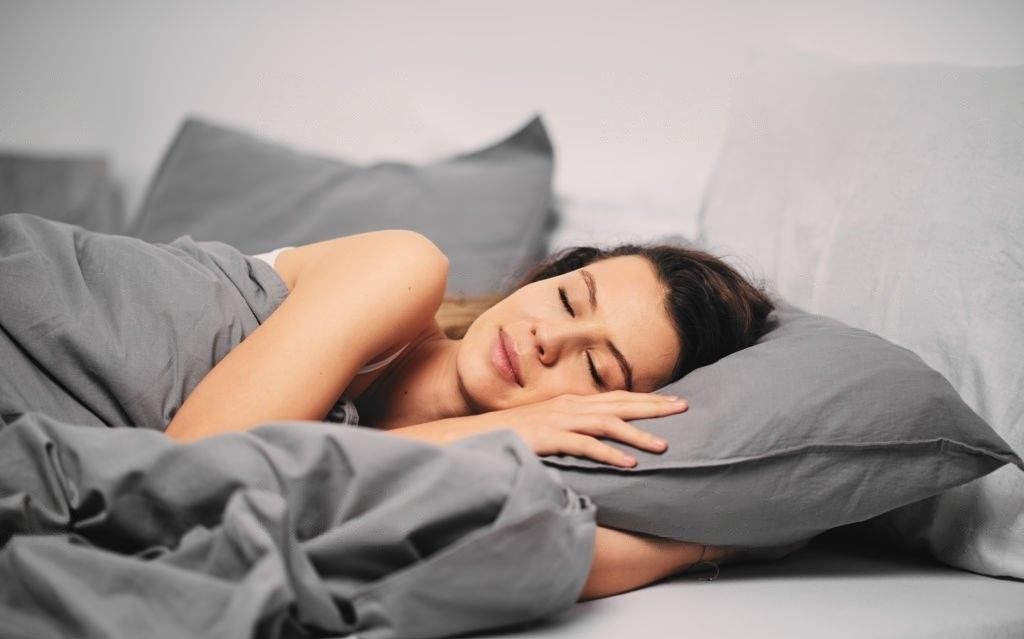The Sleep-Diet Connection: How What You Eat Can Influence Your Sleep Quality
By being mindful of the foods you choose, maintaining a consistent meal routine, and including nutrients that support better sleep in your diet, you can enhance both the quality of your sleep and your overall health and wellness.

Sleep and diet are two fundamental pillars of overall health and well-being. While we often focus on the importance of a balanced diet for physical health and energy, we may overlook the significant impact that our food choices have on our sleep quality. Scientific research has shown that the foods we consume can influence our sleep patterns, the time it takes to fall asleep, and the overall restfulness of our slumber. In this blog, we will explore the sleep-diet connection, understand how specific foods can affect sleep quality, and provide evidence-based tips for optimizing your diet to promote better sleep.
1. The Role of Nutrients in Sleep Quality
The foods we eat contain various nutrients that play essential roles in regulating our sleep-wake cycle. These nutrients influence the production of sleep-regulating hormones, brain neurotransmitters, and the overall functioning of our biological clock.
1.Tryptophan: Tryptophan is an amino acid found in certain foods, such as turkey, chicken, nuts, and seeds. Tryptophan is a precursor to serotonin, a neurotransmitter that promotes relaxation and sleep. Additionally, serotonin is converted into melatonin, the hormone responsible for regulating our sleep-wake cycle.
2. Magnesium: Magnesium is a mineral found in leafy greens, nuts, and whole grains. Magnesium plays a role in regulating GABA (gamma-aminobutyric acid), a neurotransmitter that calms the nervous system and helps induce sleep.
3. Melatonin: While melatonin is a hormone produced naturally by the body, certain foods, such as tart cherries, contain melatonin or melatonin precursors. Consuming these foods can help promote sleepiness and support the body's natural melatonin production.
2. Foods That Can Affect Sleep Quality
Certain foods and beverages can either promote or hinder sleep quality. Being mindful of your food choices, especially closer to bedtime, can have a significant impact on the ease with which you fall asleep and the quality of your sleep throughout the night.
a) Caffeine: Caffeine is a stimulant found in coffee, tea, energy drinks, and some sodas. Consuming caffeine, especially in the afternoon and evening, can interfere with falling asleep and disrupt the sleep-wake cycle.
b) Alcohol: While alcohol may initially make you feel drowsy, it can disrupt the sleep cycle and lead to fragmented and less restorative sleep.
c) High-Fat and Spicy Foods: Consuming high-fat and spicy foods close to bedtime can lead to indigestion and discomfort, making it harder to fall asleep. High-fat and spicy foods can trigger acid reflux and increase the risk of heartburn, leading to discomfort and disturbances during sleep.
3. Tips for Improving Sleep Quality through Diet
a) Establish a Regular Meal Schedule: Eating meals at consistent times each day can help regulate your body's internal clock and support a more predictable sleep-wake cycle.
b) Balance Your Macronutrients: Aim for a balanced diet that includes a combination of carbohydrates, proteins, and healthy fats.
c) Limit Caffeine and Alcohol: Avoid consuming caffeine in the afternoon and evening, and limit alcohol consumption, especially close to bedtime.
d) Choose Foods High in Magnesium: Include foods like leafy greens, nuts, seeds, whole grains, and legumes, which are rich in magnesium, to support relaxation and calmness.
e) Enjoy Sleep-Promoting Beverages: Herbal teas like chamomile, valerian root, and passionflower have calming properties that can aid in promoting sleep.
f) Avoid Heavy Meals Before Bed: Refrain from consuming large and heavy meals close to bedtime, as they can lead to discomfort and disrupt sleep.
g) Limit Fluid Intake Before Bed: Minimize your intake of liquids, especially caffeinated and sugary beverages, in the evening to reduce the likelihood of waking up for bathroom trips during the night.
SUMMARY
The sleep-diet connection highlights the significant influence that our food choices can have on the quality of our sleep. Nutrients like tryptophan and magnesium play vital roles in regulating our sleep-wake cycle, while foods like caffeine and alcohol can disrupt it. By making mindful food choices, establishing a regular meal schedule, and incorporating sleep-promoting nutrients into your diet, you can improve your sleep quality and overall well-being. Avoiding heavy meals before bedtime, limiting fluid intake in the evening, and enjoying sleep-promoting beverages like herbal teas can also contribute to a restful night's sleep.
Jayti Shah is a Clinical Nutritionist with a master's degree in Clinical Nutrition and Dietetics. She is a member of the Indian Dietetic Association (IDA). Over the last 9 years, she has helped 400 clients in their clinical and weight loss journeys. She works with SocialBoat as a nutrition consultant.
At SocialBoat, we offer custom diet plans and guided workouts to help you achieve your goals in a 360-degree approach. Our gamified experience ensures that you don’t find workouts boring and we reward you for being consistent with your efforts.

REFERENCES
- Li, Y., Hao, Y., Fan, F., Zhang, B., Theorell-Haglow, J., & Wang, X. (2018). Evening blue light exposure to computer screens disrupts sleep and reduces work productivity. Journal of Applied Physiology, 125(3), 1036-1042.
- Grandner, M. A., Jackson, N., Gerstner, J. R., & Knutson, K. L. (2014). Sleep symptoms associated with intake of specific dietary nutrients. Journal of Sleep Research, 23(1), 22-34.
- Afaghi, A., O'Connor, H., & Chow, C. M. (2007). High-glycemic-index carbohydrate meals shorten sleep onset. The American Journal of Clinical Nutrition, 85(2), 426-430.
- Peuhkuri, K., Sihvola, N., & Korpela, R. (2012). Diet promotes sleep duration and quality. Nutrition Research, 32(5), 309-319.
- Liao, W. C., Chiu, W. C., Wang, H. M., & Cheng, W. J. (2015). High intake of vegetables is related to good sleep quality among healthy Taiwanese elderly. Asia Pacific Journal of Clinical Nutrition, 24(3), 396-404.
- Chen, J. H., Wu, Y. C., Lee, M. S., Chang, C. J., & Chung, M. H. (2019). Effect of magnesium supplementation on sleep quality: a systematic review and meta-analysis of randomized controlled trials. Sleep Medicine Reviews, 46, 124-135.
- Seiquer, I., Díaz-Alguacil, J., Delgado-Andrade, C., López-Frías, M., Muñoz-Hoyos, A., & Hoyos, R. (2017). Plasma concentrations of tryptophan and phenylalanine but not of glucose are reduced in adults with restless legs syndrome. The Journal of Nutrition, 147(2), 204-210.
